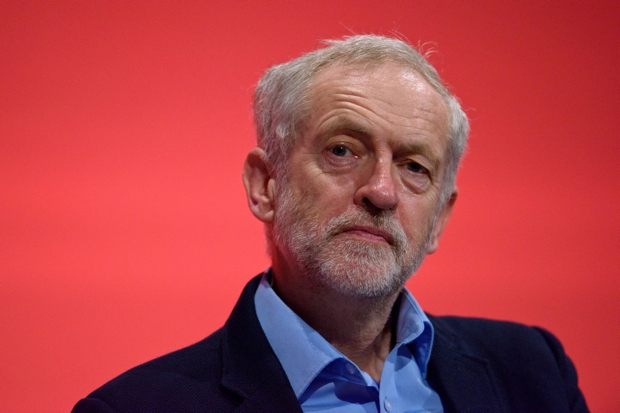Jeremy Corbyn has given an interesting round of interviews to the broadcast media this afternoon, in which he has questioned the legality of the drone strike which is believed to have killed Mohammed Emwazi, or ‘Jihadi John’, and said he would be ‘unhappy’ with a shoot-to-kill policy on Britain’s streets.
Speaking to ITV, the Labour leader said ‘I’m awaiting an explanation of where the legal basis was for that incident’. On shoot to kill, he told the BBC that:
‘I’m not happy with the shoot to kill policy in general, I think that is quite dangerous and I think can often be counterproductive, I think that you have to have security that prevents people firing off weapons where you can, there are various degrees of doing things as we know, but the idea you end up with a war on the streets is not a good thing, surely you have to work to try and prevent these things happening, that’s got to be the priority.’
https://soundcloud.com/spectator1828/corbyn-im-not-happy-with-a-shoot-to-kill-policy-in-general
This would all sound quite reasonable were it the case that no-one was really trying to prevent people firing off weapons. Corbyn makes it sound as though the policy of the British government is to be reasonably laissez-faire all the way up to someone pitching up on the streets with a kalashnikov, and then to swoop in with guns. But the real question that he needs to answer is what happens in the instances where that prevention fails and the guns are going off and killing British citizens? Similarly, although it might be desirable to try Mohammed Emwazi in a court, how would Corbyn suggest bringing such a situation about, given a summons probably isn’t going to swing it in these circumstances, and given that by the time there is an opportunity for someone to arrest a murderer like Emwazi, he could have carried out many more brutal killings?
These questions are the sorts of questions that it is difficult for anyone to answer. But it is the job of those who are in government or aspire to be in government to answer them. It is not enough to say that you’d rather policy ensured that bad things didn’t happen. Politicians need to be able to say what they’d do when bad things do happen, or when situations are less than desirable. That’s the difference between being a politician and a campaigner: the former must work with what they’ve got, while the latter can push for perfection. And that’s why being a politician is such a darned awful job.







Comments